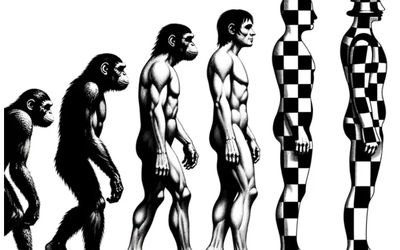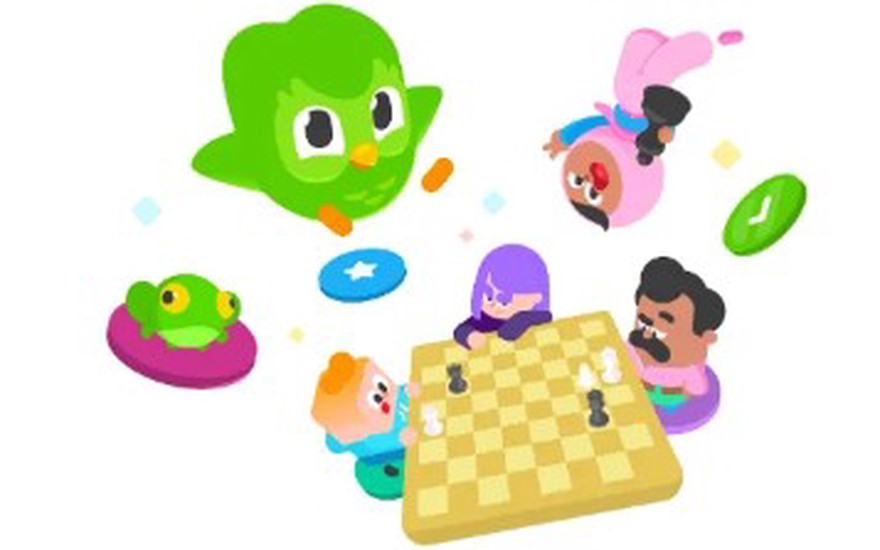
credit: chess.com/duolingo
Are Online Chess Players Trapped Pigeons?
The Increasing Gamification of Online ChessThis post was originally sent out to the readers of Say Chess. If you want to read the original article click here.
I recently read an interesting long-read article on Substack, which inspired me to write this post. The article is called “Why Everything is Becoming a Game” from the publication The Prism.
The article is about in its essence choosing the right "games" in life—those that align with one's long-term goals since everything is turning into games. This made me reflect upon the gamification elements added to online chess.
As ratings become a focal point, many players including myself chase higher numbers, sometimes to the detriment of their actual skill development or enjoyment of the game. It is only to be expected that we want to climb up the rating ladder when the ratings are awarded to us after each game.
This instant rating gratification after each game is much more significant compared to rating adjustments after each tournament or after each month as we know from OTB chess.
One of the most influential behavioral psychologists, also mentioned in the article, was B. F. Skinner. Skinner made a groundbreaking discovery when he created a set of experiments testing reward-giving to pigeons by using a button and a food dispenser.
“Skinner’s goal was to make his pigeons peck the button as many times as possible. From his experiments, he made three discoveries. First, the pigeons pecked most when doing so yielded immediate, rather than delayed, rewards. Second, the pigeons pecked most when it rewarded them randomly, rather than every time. Skinner’s third discovery occurred when he noticed the pigeons continued to peck the button long after the food dispenser was empty, provided they could hear it click. He realized the pigeons had become conditioned to associate the click with the food, and now valued the click as a reward in itself.”
— The Prism, Why Everything is Becoming a Game

B.F. Skinner with his test pigeons
When we play chess online we are getting
- Immediate rewards from the wins
- We are not rewarded every time, since we sadly also lose sometimes
- We also get conditioned to hearing specific sounds from clicking, checks, or checkmate. Try to click on the video and see if recognize the sounds.
The optimization of the design on chess.com to gamify the playing experience is becoming more and more eye-catching. When you log on you might see a giant shinny trophy blown into your face. I have recently reached the Champions League in chess without really knowing what it is. What I know is that it is yet another ranking system to get me to play more games to achieve an even higher league.
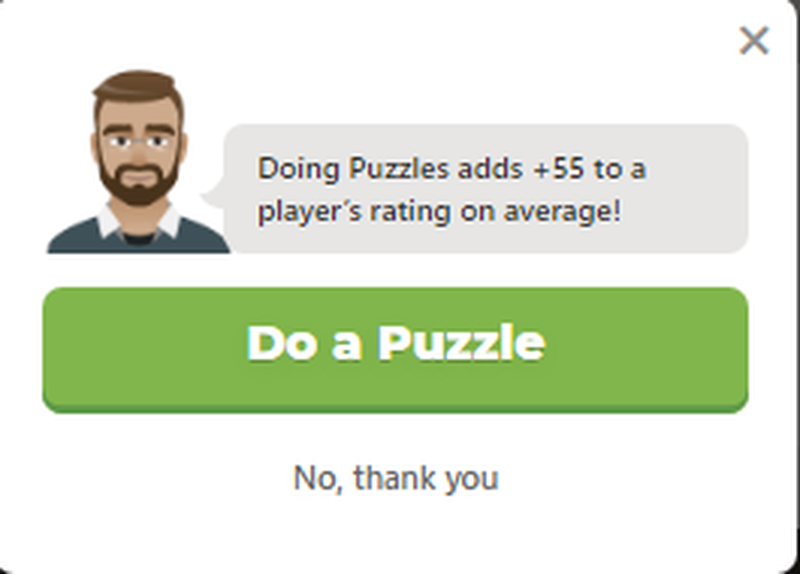
As a user I’m also awarded badges, shown that I can add +55 rating points if I start doing puzzles, and so on. Furthermore, I can see how I rank with my friends. Another example is Chessable which has gamified streaks and an economy system built around the currency of rubies that you can use to buy streak protections (see the video for further explanation). Long streaks can be used to showcase your dedication to chess study and can be a wow factor in the chess improver community.
The social components of online chess, such as ranks, displayed badges and trophies, can also serve to reinforce your will to play. They add a fictional stake to the game. Something extra. Lastly, you will also get a game report after each game showing you the accuracy score. The accuracy score quantifies the quality of a player’s moves, which also can act as a way to trick your brain into playing more.
Players may start to value the accuracy score itself as a measure of success, similar to how Skinner's pigeons came to value the clicking sound. This can result in players wanting to play yet another game to aim for a higher accuracy score in subsequent games.
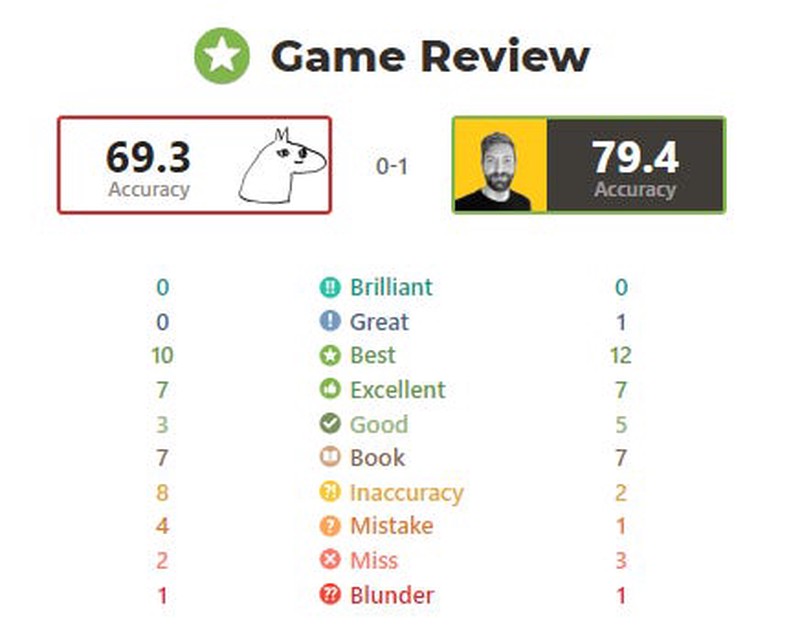
The Chess.com game report card
I think we will most likely see these gamification elements increase even more in the coming years since they are quite effective. As an example, Chess.com launched a collaboration at the end of last year with Duolingo, which may be the king of gamification and streaks.1 So they are looking in that direction.
It seems fair to question the purpose of implementing these gamified changes on their playing site since they might not be motivated by only wanting to make you a better chess player or make you enjoy playing chess more.
While writing this I got some feedback from a technology ethicist who has worked with the benefits and downsides of this technology. He said:
“These gamification elements are there for the benefits of the site in question rather than benefit the user. They’re proven techniques to boost habitual use, leading to increases in daily active users, which is going to be almost certainly one of the core metrics of as a platform.
Now, the company would almost certainly defend these tactics by saying that playing more chess means you’re likely to improve as a player. But the big ethical problem comes from the erosion of agency.
Are you really playing chess because you want to play chess? Or are you playing chess because the site is appealing to the subrational parts of your psyche to induce you to play chess? In persuasive technology, for me that clearly meets the definition of manipulation.”- Technology ethicist with 20 years experience
Companies like chess.com have to bring home a profit for their owners, as a comparison a platform like Lichess isn’t committed to doing that. That also affects the design choices made on the two sites’ websites. Chess.com is awarded for providing a more addictive-inducing experience while Lichess is not. In my opinion that also explains why the two sites look different.
So how do you avoid walking into the trap of getting caught up in gamification games? For me, it has been helpful just to reflect on this issue and try to notice all the small elements that have been added to get me to play another game or solve another tactic.
In its essence, chess is a simple game. You need a board, pieces, and a clock. Everything added, including ratings, is optimized to make it more likely that you stay engaged with the game. I do not think all gamification is bad, but I think we should be noticing and thinking about their purpose.
Especially if you want to improve at chess and not get carried away by random streaks or make it your goal to play in the Champions League on Chess.com.
It was one of my goals in creating The Tactics Ladder to strip away all the distractions you get served when solving tactics online including live tactics rating that goes up and down after each solve. While some argue that these elements help maintain their motivation to improve, the key takeaway I wish to get across is the importance of being conscious about which features help you reach your real goals.
This post was originally sent out to the readers of Say Chess. If you want to read the original article click here. New subscribers get the free ebook '100 Headachingly Hard Mate in Two Puzzles.
More blog posts by SayChessClassical
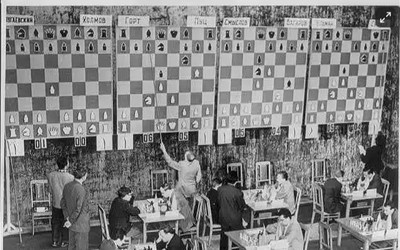
The Great Eval Bar Debate: Chess.com's Broadcasting Style
Should chess tournament broadcast feature an eval bar or not?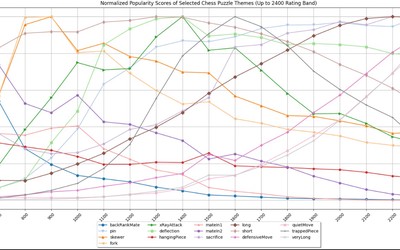
Normalized Popularity Scores of Selected Chess Puzzle Themes on Lichess
The other day I entered into a debate with GM Jacob Aagaard and IM Andras Toth on X about whether ta…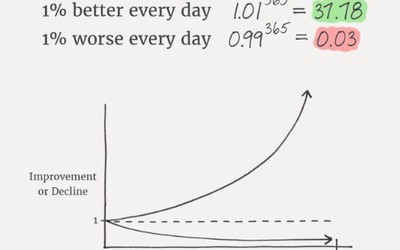
The Flawed 1%-Method for Exponential Chess Growth
This diagram is flawed. It is from James Clear who made the bestselling book Atomic Habits. In Germa…